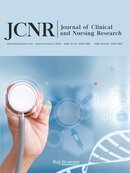Abstract
Objective: To study the factors influencing the length of stay in patients with COVID-19. Methods: The clinical data of 110 patients with COVID-19 who were infected with Omicron virus for more than 10 days from April to May 2022 were collected. Their gender, age, smoking status, clinical manifestations related to pneumonia, whether they were combined with other basic diseases and vaccination status were analyzed. The above influencing factors were analyzed by single factor regression analysis, followed by Cox regression model analysis. Results: The age of patients had an effect on the length of hospital stay. The median length of hospital stay of patients that are < 50 years old, 50-64 years old and ? 65 years old were 14, 14, and 17 days respectively (?2 = 9.346, P = 0.009). The presence of coronavirus-related symptoms also affects the length of hospital stay (?2 = 4.840, P = 0.028). The results of multivariate regression model showed that age (?2 = 8.669, P = 0.006) and coronavirus-related symptoms (?2 = 5.424, P = 0.020) were independent factors affecting the length of hospital stay. Conclusion: During the development of COVID-19, the age of patients and whether they have coronavirus-related symptoms are positively correlated with the length of stay. Gender, habit of smoking, presence of other basic diseases and vaccination are not related to the length of stay.
References
Kannan S, Ali P, Sheeza A, et al., 2020, COVID-19 (Novel Coronavirus 2019) - Recent trends. Eur Rev Med Pharmacol Sci, 24 (4): 2006–2011.
Micheli V, Bracchitta F, Rizzo A, et al., 2022, First Identification of the New SARS-Cov-2 Omicron Variant (B.1.1.529) in Italy. 75(3): 522–524. https://doi.org/10.1093/cid/ciab1044
Ma CB, Chen XY, Mei FH, et al., 2022, Drastic Decline in Sera Neutralization Against SARS-Cov-2 Omicron Variant in Wuhan COVID-19 Convalescents. Emerging Microbes and Infections, 11(1): 567–572.
Liu Y, Yu Y, Zhao Y, et al., 2022, Reduction in the Infection Fatality Rate of Omicron (B.1.1.529) Variant Compared to Previous Variants in South Africa. International Journal of Infectious Diseases, 2022(120):146–149.
Cohen K, Ren S, Heath K, et al., 2022, Risk of Persistent and New clinical Sequelae Among Adults Aged 65 Years and Older During the Post-Acute Phase of SARS-Cov-2 Infection: Retrospective Cohort Study. BMJ, 2022(376): e068414.
Huang AT, Garcia-Carreras B, Hitchings MDT, et al., 2020, A Systematic Review of Antibody Mediated Immunity to Coronaviruses: Kinetics, Correlates of Protection, and Association with Severity. Nat Commun, 11(1): 4704.
Mallapaty S, 2022, Fourth Dose of COVID Vaccine Offers Only Slight Boost Against Omicron Infection, Nature, Feb 23, 2022. https://doi.org/10.1038/d41586-022-00486-9.
Guan WJ, Liang WH, He JX, et al., 2020, Cardiovascular Comorbidity and its Impact on Patients with COVID-19. European Respiratory Journal, 2020(55): 2001148 https://doi.org/10.1183/13993003.01148-2020
